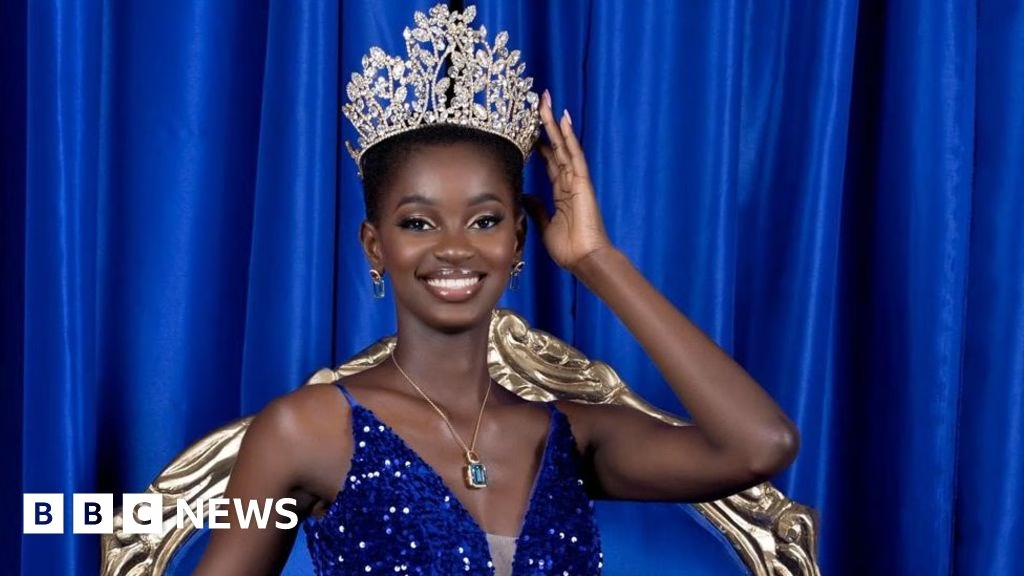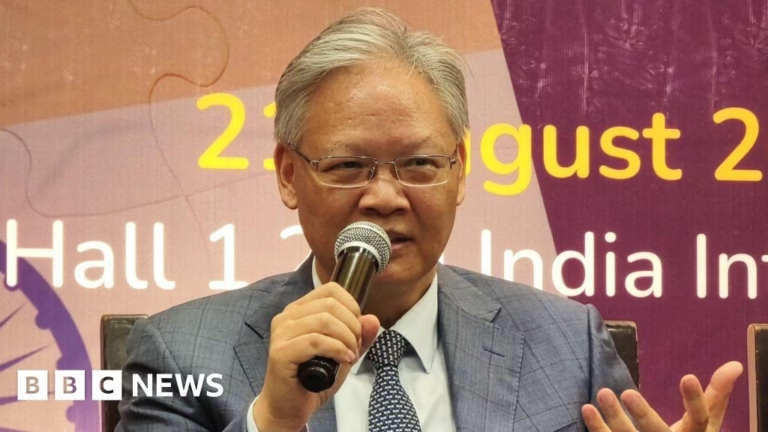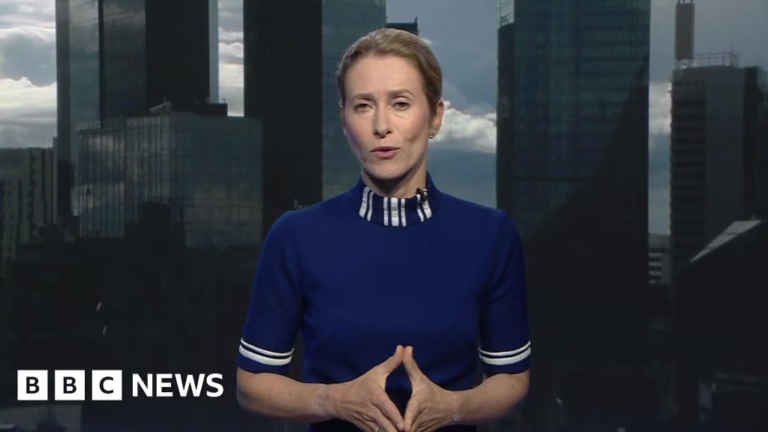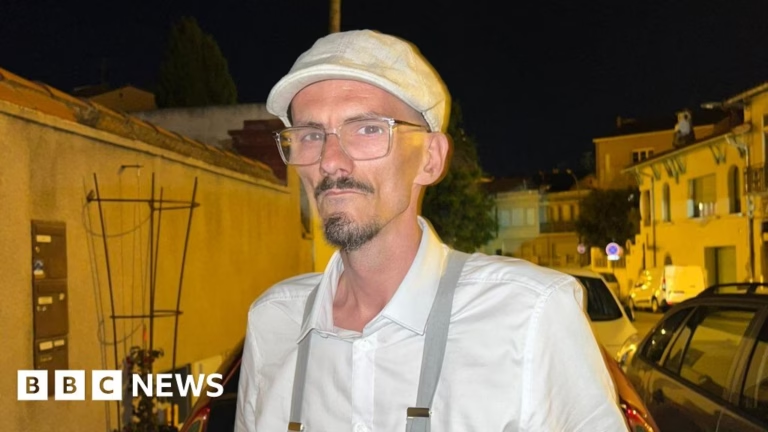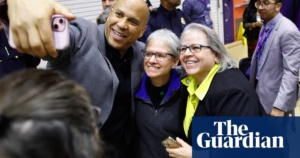.webp)
Contestants in the West African nation often spend a huge amount of money on their appearance, from outfits to hairdos – with very few choosing the natural look.
In more than six decades, there have only been two notable exceptions, the most recent was Marlène-Kany Kouassi, who took the Miss Ivory Coast title in 2022 – looking resplendent with her short natural hair, the crown becoming her only adornment. Her victory was not only unusual in Ivory Coast but across the world, where Western beauty standards are often the desired look both for those entering contests and for the judges.
Changes are slowly creeping in – last December Angélique Angarni-Filopon, from the French Caribbean island of Martinique, made headlines when she was crowned Miss France, mainly because of her age – she is 34 – and she also sported short Afro hair.
But this year the organisers of the Ivorian competition are shaking things up right from the start. Wigs, weaves and hair extensions have been banned from the preliminary stages of the competition, which are held in 13 cities across the country (as well as two abroad for those in the diaspora). “We want the candidates to be natural – whether with braids or straightened hair, it should be their own. Beauty must be raw,” Victor Yapobi, president of the Miss Ivory Coast organising committee, told the BBC.
Ivory Coast is the only African country enforcing the ban for a national competition. Mr Yapobi said the organisers in Ivory Coast had long been trying to promote a more natural look – for example cosmetic surgery is a no-no and skin lightening is frowned upon. “We decided this year to truly showcase the natural beauty of these young women,” he said.
Other changes have also been implemented, like allowing slightly shorter women to compete – the minimum is now 1.67m (5.4ft), increasing the age by three years to 28 and – crucially – lowering the entrance fee by more than $30 (£25) to $50. “This change in criteria is because we observed these young women were putting up a lot of money to participate, and it was becoming a bit of a budget drain.”
When the BBC joined the first preliminary pageant in Daloa, the main city in the western region of Haut-Sassandra, one contestant was overjoyed by the new rules – feeling it gave her a better chance of success as she prefers not to wear wigs. “I would see other girls with long, artificial hair, and they looked so beautiful,” 21-year-old Emmanuella Dali, a real estate agent, told the BBC. “This rule gives me more pride as a woman – as an African woman.”
.webp)
As a fashion choice, many women love the creativity that wigs and weaves allow them. They also serve as what is called “protective style”, which means minimising the daily pulling and tugging on hair that can cause breakages.
This was reflected by some contestants in Daloa who felt the rule removed an element of personal expression. “I’m a wigs fan. I love wigs,” said contestant and make-up artist Astrid Menekou. The 24-year-old told the BBC she was initially shocked by the no-wig, no-extensions stipulation. “I didn’t expect this rule! But now? I like my hair, and that’s OK.”
The new rule has made the competitors think more about concepts of beauty – and changed some opinions, like those of Laetitia Mouroufie. “Last year, I had extensions because I thought that’s what beauty meant,” the 25-year-old student told the BBC. “This year, I feel more confident being myself.”
.webp)
“This rule is not good for us,” Ange Sea, a 30-year-old hairdresser in Daloa, told the BBC. “Many women love wigs. This will hurt our business and we make more money when working with wigs and weaves.”
At her salon, glue will be used to carefully attach wigs to make them look more natural and women will spend hours having weaves and extensions put in. It shows how deeply engrained wig culture is in West Africa, despite a natural hair movement that has been gaining momentum among black women around the world over the last decade.
.webp)
With the preliminary rounds under way, arguments over whether pageants should be setting beauty rules or women should decide such things for themselves continues. The outcome may be that there is more of an acceptance of both in Ivory Coast, allowing women to switch styles up – between natural hair and wigs and weaves. Mr Yapobi said the feedback he had received over the new rules was “extraordinary” and clearly showed it was having an impact. “Everyone congratulates us. Everyone, even from abroad. I receive emails and WhatsApp messages from everywhere congratulating us for wanting to return to our roots.”
He said no decision had been taken about whether the wig ban would apply to the 15 contestants who make it to the final of Miss Ivory Coast 2025. This extravaganza will take place at a hotel in Abidjan at the end of June and will be broadcast on national TV. “If it works, we’ll continue and carry on this initiative in the years to come,” Mr Yapobi said. For Doria Koré, who went on to be named Miss Haut-Sassandra, her crown holds even more significance: “Winning with natural hair shows the true beauty of African women.” Ms Dali said she was walking away with something even more valuable – self-confidence: “I didn’t win, but I feel proud. This is who I am.” Additional reporting by the BBC’s Nicolas Negoce and Noel Ebrin Brou in Abidjan.



